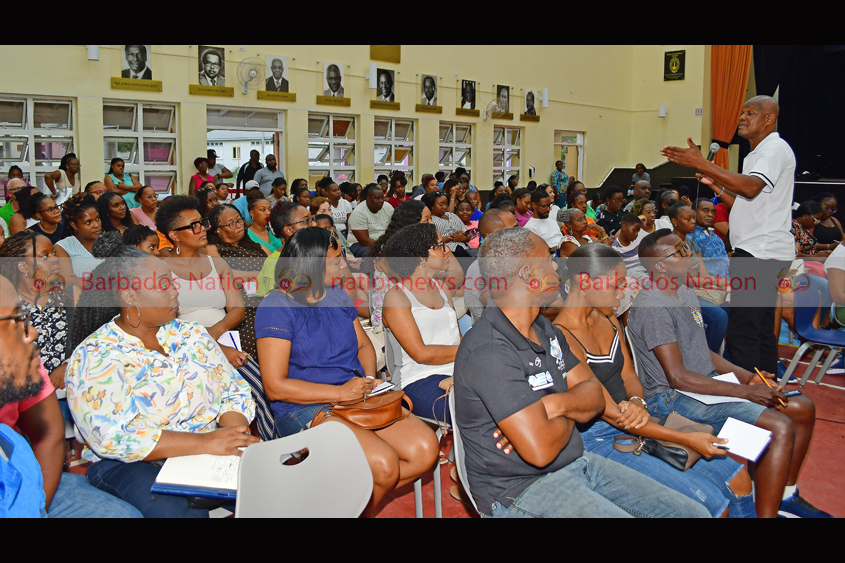

Parents were urged to carefully assess their children’s readiness for the Barbados Secondary School Entrance Examination (BSSEE) if considering early sitting.
At a meeting recently at the Christ Church Foundation School, senior education officer for examinations in the Ministry of Education, Glyne Pryce, outlined the strict criteria and challenges associated with this option.
“You may feel your child is ready at ten, but remember, they only get one chance,” Pryce said.
He explained that students must have consistently scored at least 85 per cent in English and mathematics across six terms to qualify. While some flexibility is allowed for unforeseen circumstances, such as changes in teaching staff or personal challenges, performance must remain consistently strong.
“If scores dip slightly, say to the low 80s, due to a valid reason, such cases will be reviewed, but consistent excellence is critical,” he added.
Pryce highlighted the competitive nature of early transfers, noting that children should ideally rank among the top 100 performers across Barbados’ 103 primary schools to demonstrate their readiness. He warned, however, that early transfers come with unique challenges.
“Secondary school environments are not always conducive to younger, smaller children, who may find it difficult to integrate with older peers,” he said. This factor, he stressed, must be carefully considered by parents, as emotional and social maturity are as important as academic readiness.
For students who are 11 but deemed unprepared for secondary school, deferral options exist. Pryce explained that deferrals typically apply to students scoring less than 20 marks in English and mathematics across six terms or those who miss significant portions of the school year. However, he noted that deferrals can have long-term effects.
“When deferred students eventually enter secondary school at 12 years old or older, they often face difficulties adjusting to younger peers or competing with more seasoned students,” Pryce said.
In cases where children are exempted from sitting the BSSEE entirely, Pryce explained that psychological evaluations play a key role. Students operating below the expected developmental level for their age group may be assigned to alternative educational programmes better suited to their needs. He noted that these decisions are made in consultation with educational psychologists and aim to prioritise the best interests of the child.
Pryce also addressed issues of nationality and immigration, reminding parents that eligibility to sit the BSSEE depends on their children’s legal status. Nationals, defined as individuals born in Barbados, are automatically eligible. However, students born outside of CARICOM must provide a valid student visa unless exempted due to specific circumstances, such as a parent working for an international organisation. He warned parents to ensure that all necessary documentation is submitted on time to avoid complications.
“If the required documents are not provided, the Ministry has no choice but to deny access to the exam,” he said.
Throughout the meeting, Pryce encouraged parents to stay engaged with their children’s academic progress and to maintain open communication with schools. He emphasised the importance of early intervention.
“If your child’s performance dips in Class 2 or 3, you should address it with the school immediately rather than waiting until the exam year. The Ministry cannot adjust its criteria for individual cases if the standards are not met,” he stated firmly.
The senior education officer concluded by urging parents to make well-informed decisions about their children’s readiness, balancing academic capability with emotional preparedness.
“This process is not just about scoring well; it’s about ensuring the child is ready for the next stage of education. The ultimate goal is a smooth and successful transition,” Pryce said.
The meeting provided parents with valuable insights into the BSSEE process and the decisions they must navigate, equipping them with the tools to support their children in making a seamless transition to secondary school.





